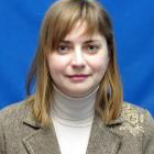
Darya Surova
Work place: Department Language competence center, D. Serikbayev East Kazakhstan technical university, Ust-Kamenogorsk 070004, Kazakhstan
E-mail: dsurova@edu.ektu.kz
Website: https://orcid.org/0000-0003-1847-8697
Research Interests:
Biography
Darya Surova is a Senior Lecturer at the Language Competence Center of D. Serikbaev East-Kazakhstan technical University, where she has worked since 2003. She has also served as Deputy Dean of the Faculty of Economics and Management (2009–2012) and Head of the Educational Technology Center (2014–2016). She earned the degree of Candidate of Philological Sciences (2008) from L.N. Gumilyov Eurasian National University, specializing in Russian language (10.02.01). Her academic background includes a Master‘s and Bachelor‘s degree in Philology from S. Amanzholov East-Kazakhstan State University, with a focus on linguistics and language teaching methodology. Her research interests include practice-oriented education, communicative linguistics, and stylistics.
Author Articles
The Influence of an Adaptive Non-Formal Education Model on Student Learning Activity and Engagement
By Tulebike Kulgildinova Araily Sarsembayeva Darya Surova Indira Kalelova Meruyert Zhaizhatyrova Saniya Nurgaliyeva
DOI: https://doi.org/10.5815/ijmecs.2025.05.06, Pub. Date: 8 Oct. 2025
In the context of ongoing digitalization and the growing importance of non-formal education in Kazakhstan’s higher education system, there is an increasing demand for adaptive educational models that address students' individual learning needs and broaden the scope of academic engagement. This study examines the effects of an adaptive non-formal education model on students' learning activity and engagement, and identifies the model components with the most significant impact. A quantitative quasi-experimental design was employed, involving pre- and post-intervention assessments using validated questionnaires. Key indicators included participation in supplementary educational activities, online learning platforms, external courses, and project-based or volunteer initiatives. The results indicate a statistically significant improvement in students’ educational involvement in the experimental group, as demonstrated by increased participation in external learning events, greater self-directed learning, and the development of personalized educational trajectories. The study highlights the potential of adaptive non-formal education as a strategic tool to enhance institutional flexibility and student motivation. Its novelty lies in testing a context-sensitive adaptive non-formal education model tailored to Kazakhstan’s institutional realities. The findings contribute to the global discourse on flexible education strategies and suggest directions for scaling and integrating the model into digital academic ecosystems.
[...] Read more.Other Articles
Subscribe to receive issue release notifications and newsletters from MECS Press journals